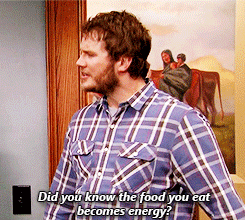You're probably pretty familiar with the way the federal government picks its judges. The president selects a nominee, the Senate confirms or rejects the nominee (or else declines to bring them up for a vote), and if the Senate confirms, then the pick gets to serve as long as he or she likes. If they serve for 15 years and make it to age 65, and aren't on the Supreme Court, they can even enjoy a genteel form of semi-retirement known as "senior status," where they get to oversee cases but don't have to work full-time.
State judicial systems don't work like that. In fact, according to a new report by Emory law professor and economist Joanna Shepherd, released by the left-leaning American Constitution Society, only three states grant lifetime tenure to judges on their highest court. Indeed, barely over half -- 28 -- rely on gubernatorial or legislative appointments for the initial selection of the highest court's judges at all; they're the states in shades of red below.

The ones in light red use "merit selection," or a system where a bipartisan commission selects a shortlist of candidates for appointment, who then sends the list to the governor, who then must pick one of the candidates from the list. Missouri's version of that system is perhaps the best known.
In the states that don't have lifetime tenure, appointed judges either have to be reappointed after a given period by the governor, legislature, or a judicial nominating committee, or they have to be retained by the people in what's called a "retention election." And in the 22 states where judges aren't initially appointed, it's elections all the way down. In fact, nine states (the ones in dark blue on the map) use partisan elections to decide the membership of their highest court.
When judges are elected, that means they have to raise campaign money — a lot of money, in fact. And the amounts in question have risen considerably in recent decades:

Shepherd explains this coincided with battles around tort reform heating up. "Elections completely changed in personality after the tort reform movement," she said in an interview. Perhaps unsurprisingly, then, business interests and lawyers/lobbyists groups (for example, the plaintiffs' bar, or trial attorneys) contribute the most:

But, Shepherd notes, that only looks at direct expenditures. When you consider third-party groups that spend during campaigns, business donates much more. "The plaintiffs' bar and businesses give the same to candidates, but on independent spending, businesses dwarf plaintiffs' bar and unions and insurance companies," she says.
That means there's a chance all that business money could influence judicial outcomes. Shepherd tried to figure out whether that, in fact, happens in states with judicial elections. She and her research team compiled a dataset of every business-related state supreme court case (2,345 in total, by 439 justices), in all 50 states, decided between 2010 and 2012. She matched that up with data on the states' selection processes, the justices' political party affiliations, and the elected justices' campaign contributors.
They tallied up donations from all business groups, as well as the share of all contributions coming from business. Interestingly, partisan elections both involve bigger sums in general, and a bigger share of business contributions, than either nonpartisan or retention elections:

And Republicans get more business contributions, regardless of what election system is used:
They then culled all cases with one business litigant and one non-business litigant, and coded each judge's vote according to whether or not it would have made the business litigant better or worse off. They also controlled for a variety of factors besides business donations, such as the judge's party affiliation, the state's political leanings, and the strength of the underlying case, that might influence judges' decisions.
Shepherd finds that the percentage of donations received from business is highly correlated with a judge's rate of voting for business. Her model predicts that a justice getting 1 percent of his contributions from business would vote for business 46.5 percent of the time. But a justice getting 25 percent of contributions from business would vote in its favor 62.1 percent of the time. The effect isn't linear; after a certain point, a greater share of donations from business doesn't translate into more favorable rulings. For example, a justice with 100 percent business donations would be expected to vote for business 68.5 percent of the time -- not all that much more often than someone getting only a quarter of her contributions from business:

Shepherd also finds that this result depends a lot on both the type of election system used and the party of the judicial candidate in question. The decisions of judges facing retention elections don't seem to be influenced by the share of contributions coming from business. That makes sense, given that the rate of reelection in retention races is absurdly high. Larry Aspen, a political scientist at Bradley University, has found that of the 7,689 retention elections between 1964 and 2010, only 65 resulted in a judge not being retained; the retention rate, in other words, was 99.2 percent. By contrast, the relationship between contributions and votes is real for both partisan and nonpartisan elections, but stronger for partisan elections.
Additionally, the results are much stronger for Democrats than Republicans, for whom the relationship between decisions and contributions is statistically insignificant. This, Shepherd says, is probably because Republicans are already likelier to vote in favor of business, so Democrats are more capable of being swayed by donations.
The coefficients on both the total dollar amount of business donations and the share of donations coming from business — that is, the degree to which those affect judges' votes — grew between 1995-1998 and 2010-2012, Shepherd found.
It's easy to interpret this as a simple case of quid pro quo, where business interests are buying the outcomes they want. But it's not that simple. Perhaps businesses are just giving to candidates who already are likelier to support pro-business outcomes. Shepherd concedes that both of these factors are likely operating in this case, but argues that they're both insidious. "If you're asking, 'is interest group money affecting case outcomes?' it doesn't matter what causal pathway is doing it," she notes.
And it's worth noting that there's evidence for the first pathway. Shepherd points to other research she's done comparing the votes of judges who can't run again and face mandatory retirement to those same judges' votes when reelection was still a prospect. She and her coauthor, Michael Kang, found that retiring judges were significantly less likely to vote in favor of business. "In the last term before mandatory retirement, the favoritism toward business litigants by judges facing partisan and non-partisan elections essentially disappears," Shepherd and Kang write.
In other words judges, when they no longer need to raise money, are less likely to vote for business. That suggests that what's happening is not merely than the campaign system is selected for candidates who happen to be pro-business. At least some of what's going on is that judges, consciously or unconsciously, know they need to raise money, and help out business litigants toward that end.
The prospect of money influencing legislative outcomes is troubling enough, but the judicial system is intended to be impervious to this kind of thing. Shepherd's results suggest that, where judges are elected, that's hardly the case.
Update: This article originally said Shepherd compiled a dataset of "every state supreme court case" between 2010-2012; she actually compiled one of "every business-related state supreme court case." We regret the error.





























